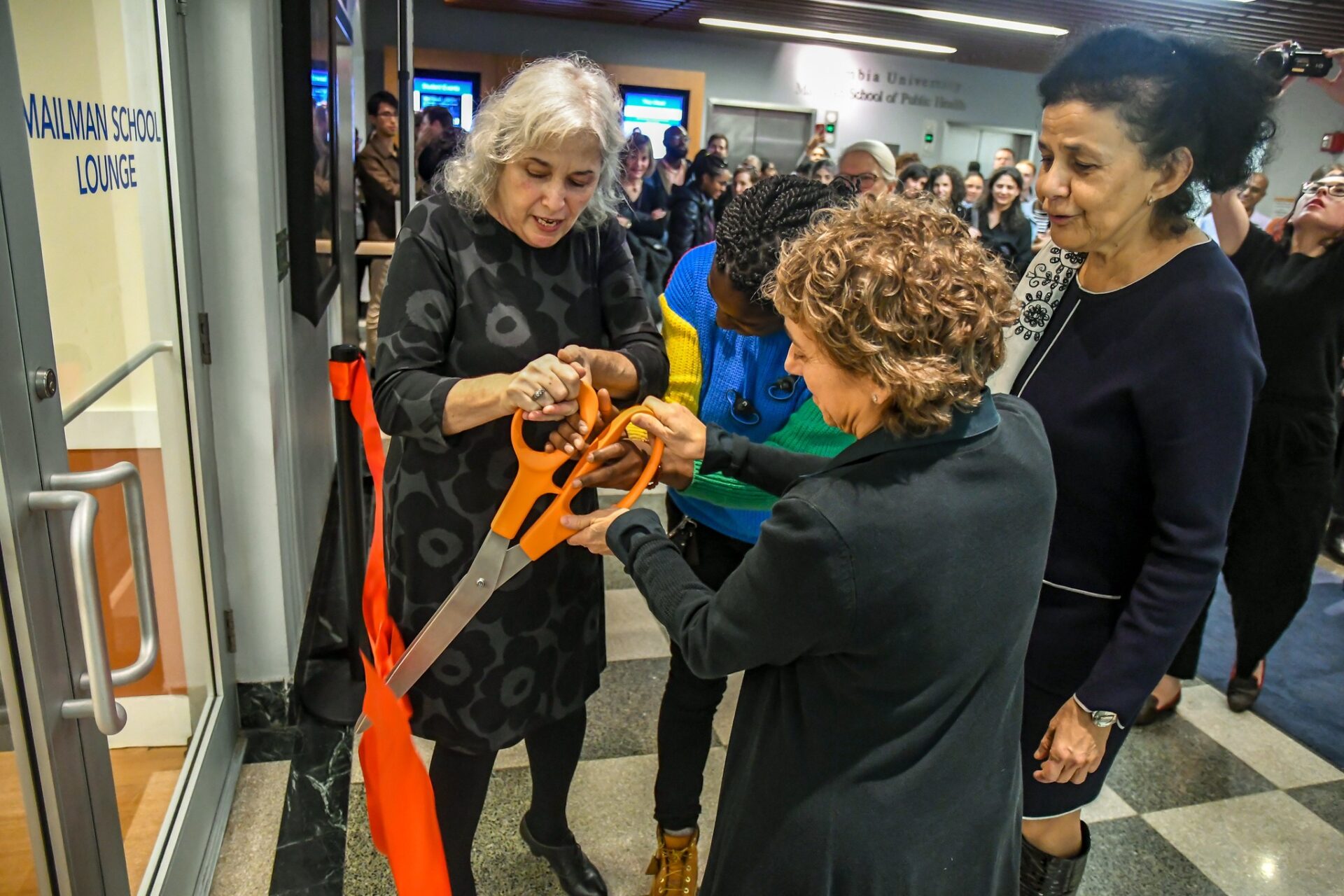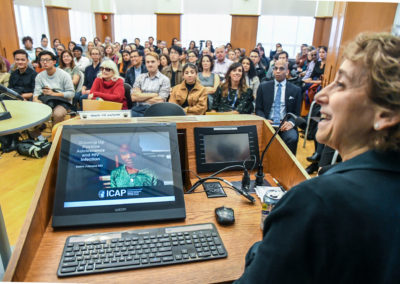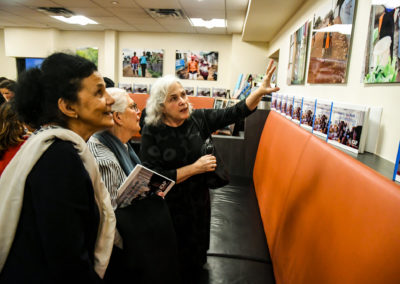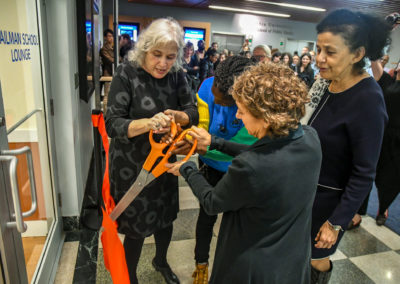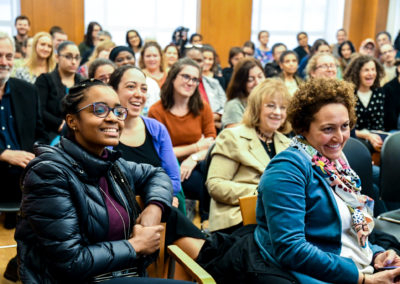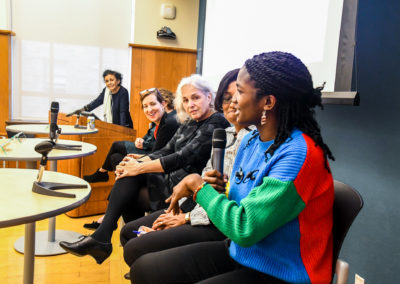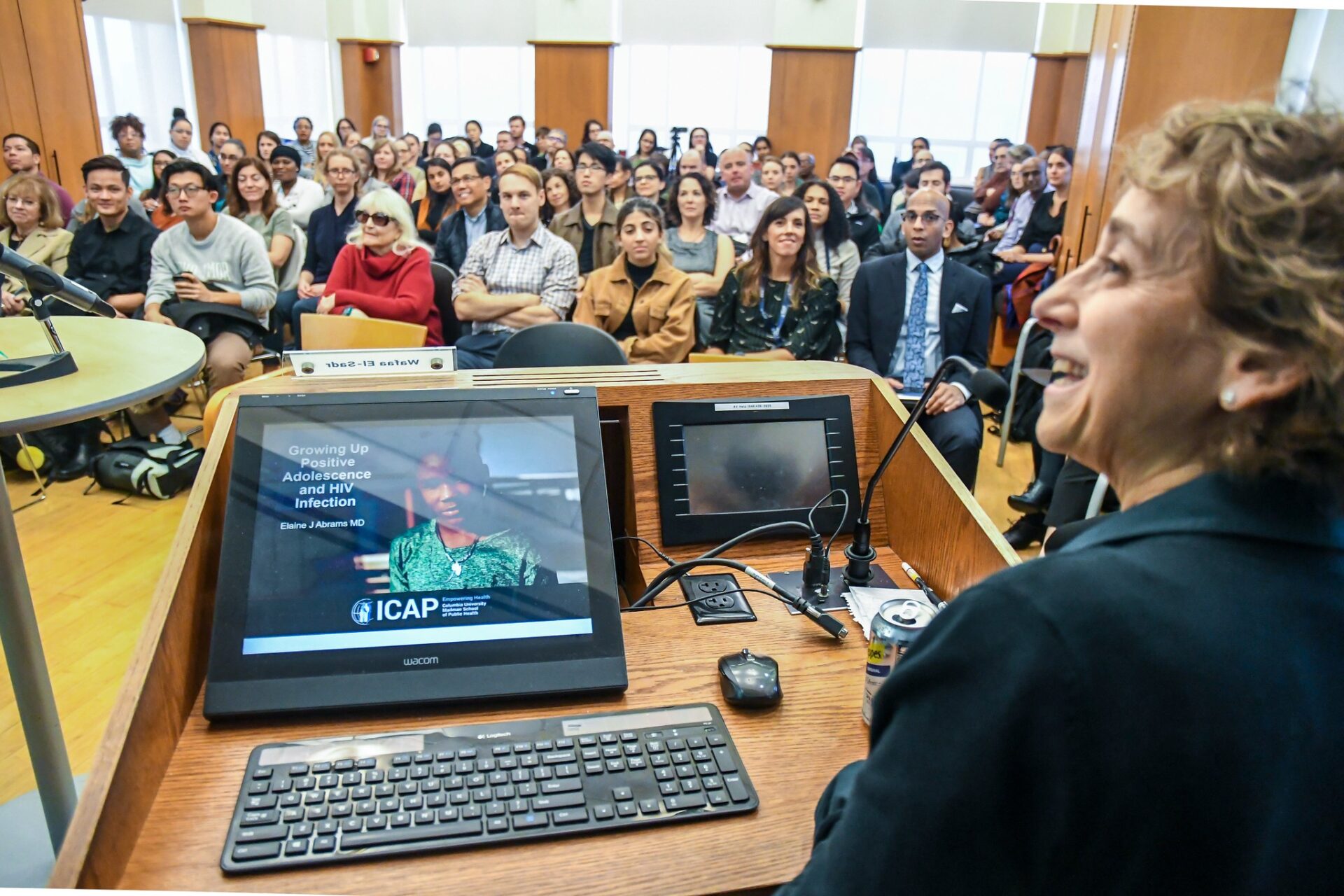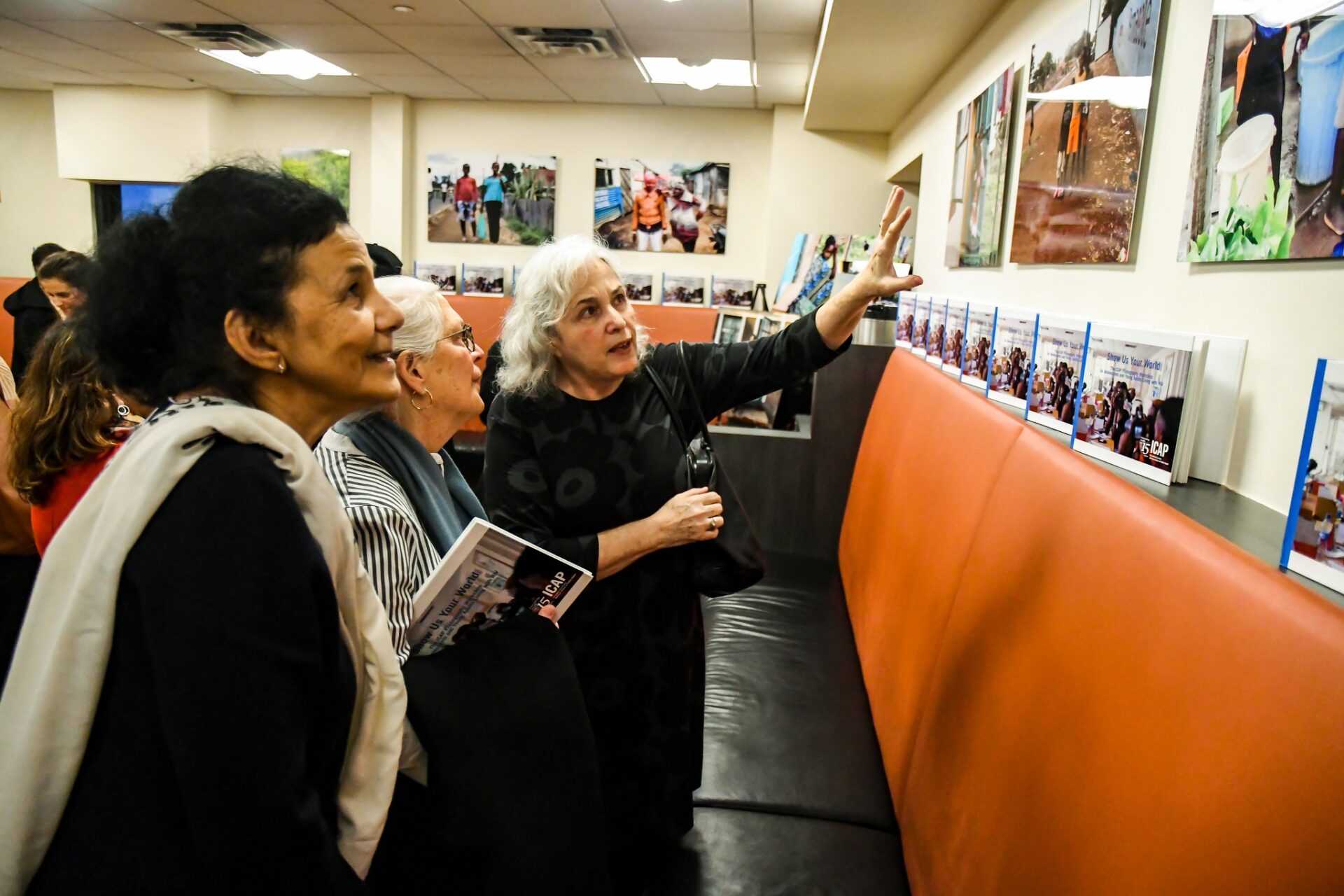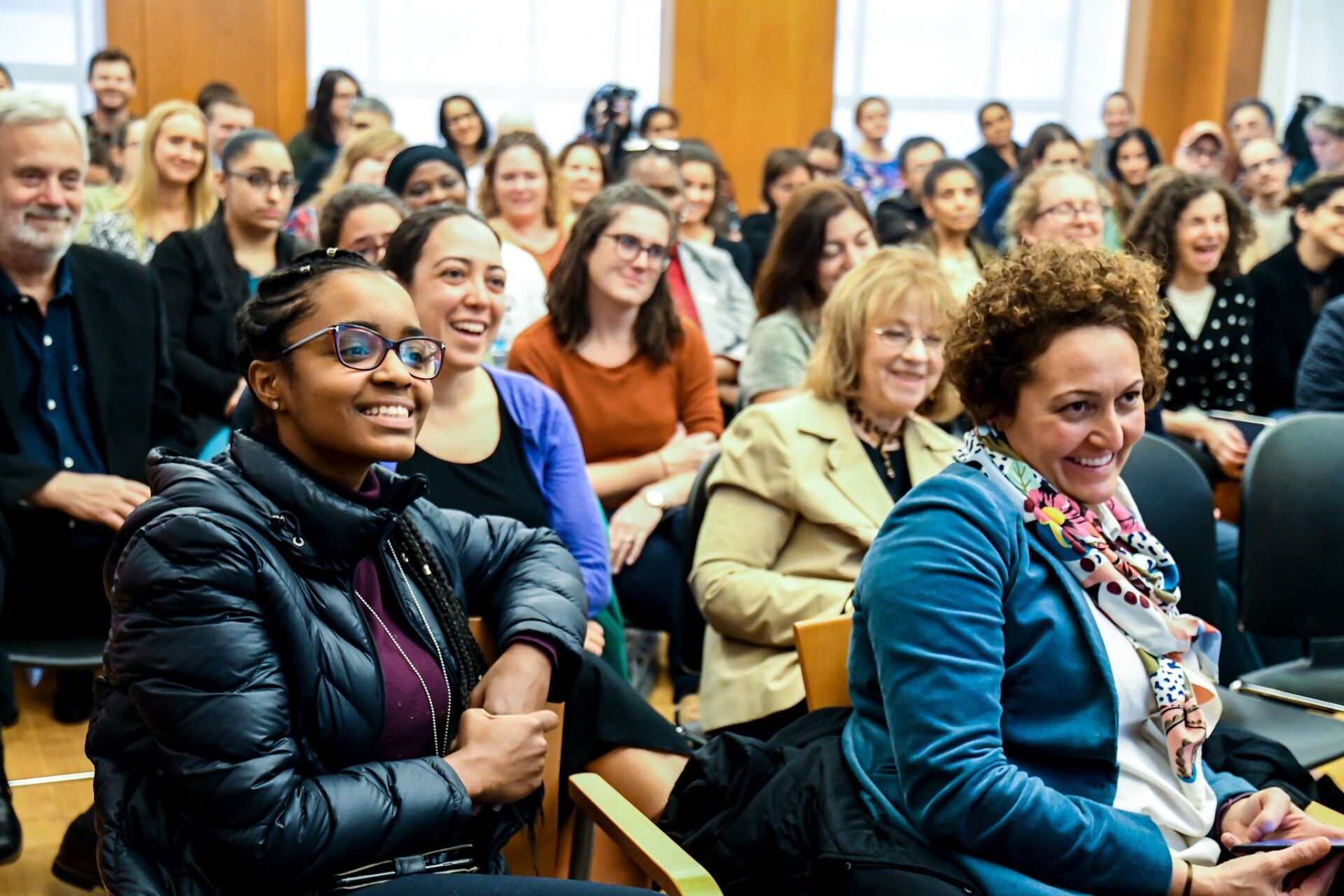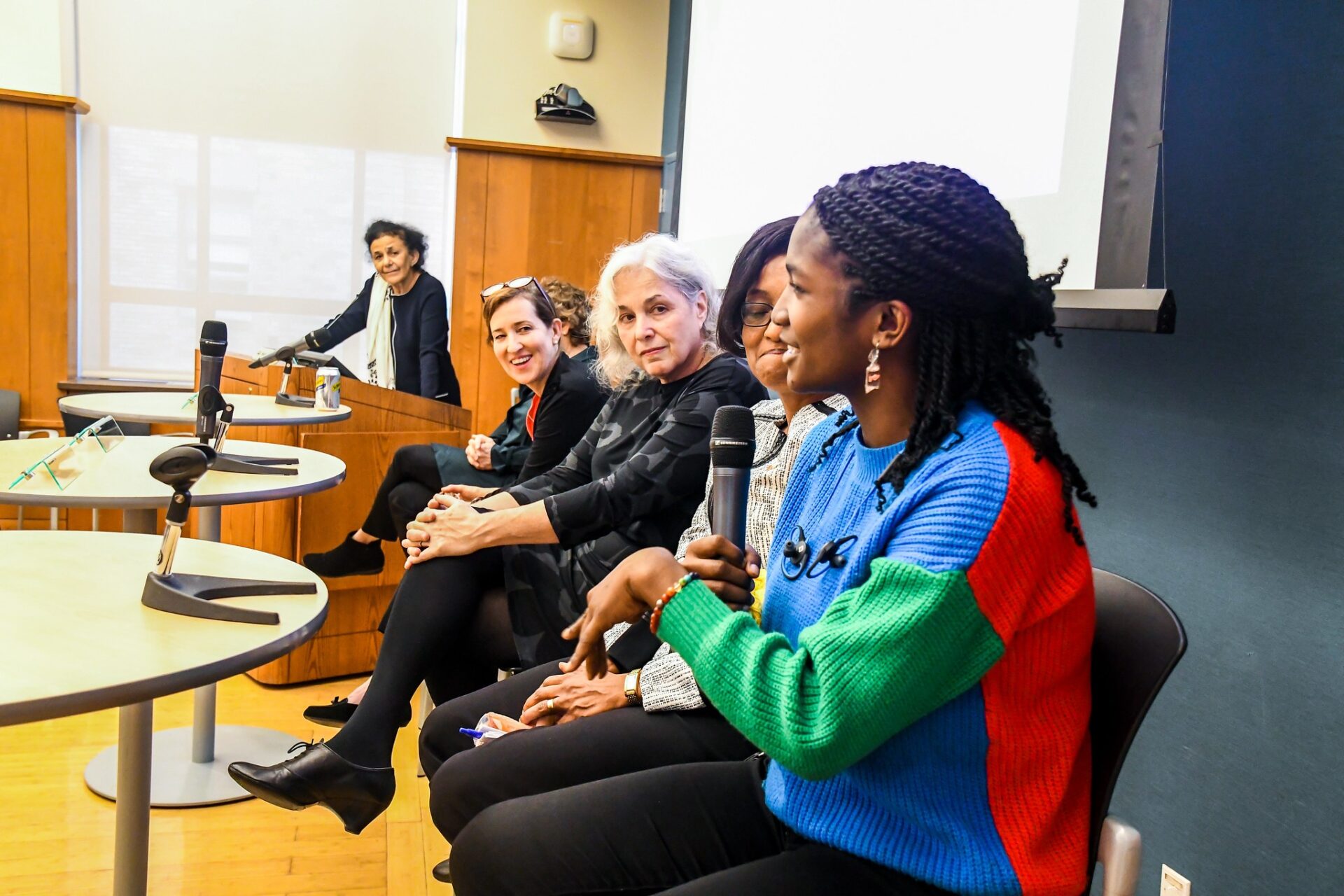In recognition of World AIDS Day 2019, ICAP at Columbia University held a special event highlighting the unique experience of adolescents living with HIV around the world featuring a documentary screening and expert panel discussion.
More than 100 people filled Hess Commons at Columbia University’s Mailman School of Public Health, including staff and students from the Mailman School and the wider ICAP community.
In her opening remarks, ICAP’s Wafaa El-Sadr emphasized intentional and purposeful community engagement in the global HIV response saying: “If there is one thing that we’ve learned from day one in the HIV response, it is the fundamental role of the community in everything we do. This is the ethos of what ICAP does and central to the global HIV response.”
Dean of the Mailman School of Public Health, Dr. Linda P. Fried, MD, MPH, also spoke at the event, sharing some of her personal experiences in New York City hospitals at the start of the epidemic in the United States: “I remember the bad old days [of the HIV epidemic] when hospitals were drowning in really sick patients, many of whom didn’t survive.” She went on to recognize the work of the public health field at large, including many of those present in the audience, by saying: “To be at this point in history, where there is a lot to celebrate is the result of the commitment, the accomplishments, the science, the translation, the innovation, and the work that everyone in this room has been dedicated to that we do with communities locally and around the world.”
Elaine Abrams, Senior Research Director at ICAP, gave an overview of the global HIV epidemic and ICAP’s work to build safe spaces for HIV-positive teenagers within clinic settings through the use of photography workshops in Kisumu, Kenya. A multi-disciplinary team including health care providers, artists, and HIV researchers came together to create a customized curriculum for adolescents and youth, covering photography fundamentals and narrative storytelling as a form of self-expression. “The purpose of the workshop was to provide the participants with an opportunity to explore photography as a medium for self-expression and to learn to use a digital camera,” said Abrams. “It allowed the young people to make pictures as a way to express themselves and to see their friends, families, and local environs through a different lens.”
Following this, a short film titled based on real life experiences of young people who have grown up living with HIV was screened. Produced by the Children’s HIV Association in the United Kingdom, Life Growing Up explores critical issues of living with HIV from a young person’s perspective, including finding out about your HIV diagnosis, maintaining medication adherence, clinic engagement, and disclosing your HIV status to a friend or partner.
The film jump–started an engaging panel discussion, with HIV researchers and a community peer educator sharing personal and professional experiences on the impact HIV has had on young people around the world, both in the U.S. and abroad. With Dr. El-Sadr moderating, the panel included: Amy Bedik, Photographer, Columbia University’s School of Journalism; Claude Mellins, PhD, Professor, Medical Psychology, Columbia University Medical Center; Aquina McCarthy, Peer Educator; and Ruby Fayorsey, MD, MPH; Deputy Director, Clinical and Training Unit, ICAP; as well as ICAP’s Dr. Abrams.
The panel concluded with a moving video created by a group of young people living with HIV from Kisumu, Kenya. These adolescents participated in photography workshops, led by ICAP under the direction of Amy Bedik, designed to provide an outlet for self-expression and support for young people confronting the challenges of growing up with HIV. Two of these amazing young people spoke movingly at ICAP’s 15th anniversary celebration on the Columbia University campus in New York in 2018.
The event concluded with the special dedication of a permanent installation of photographs taken by the young people from Kenya. The photos are prominently displayed at the Mailman School of Public Health’s community lounge.


